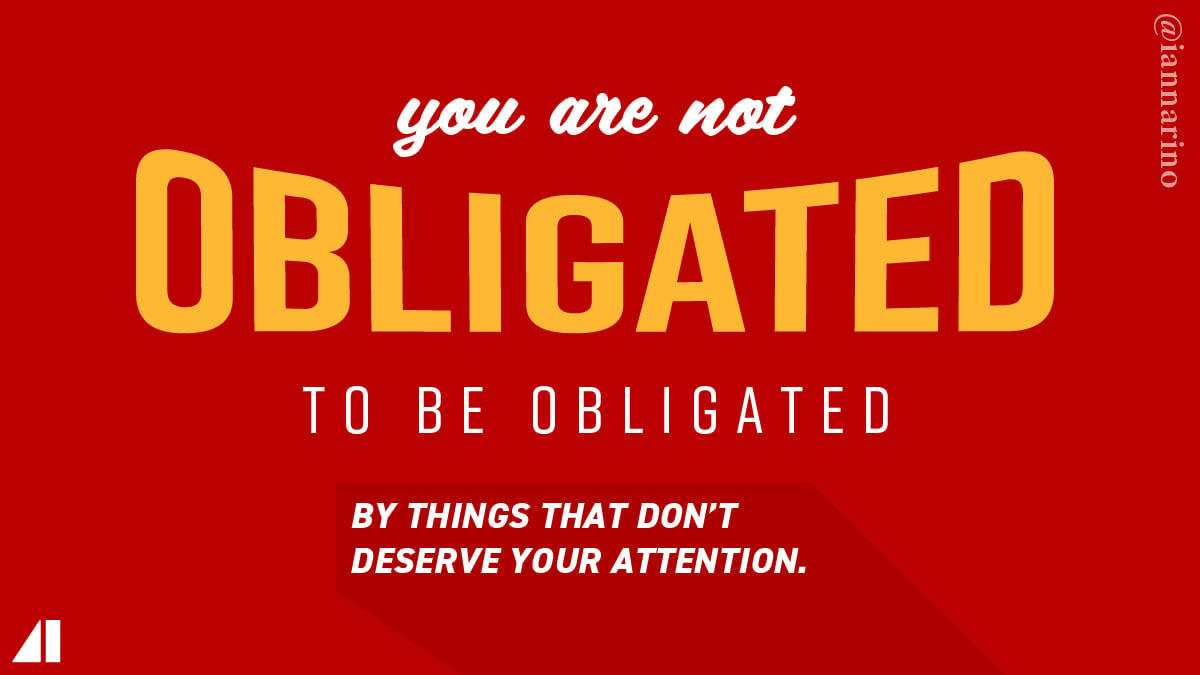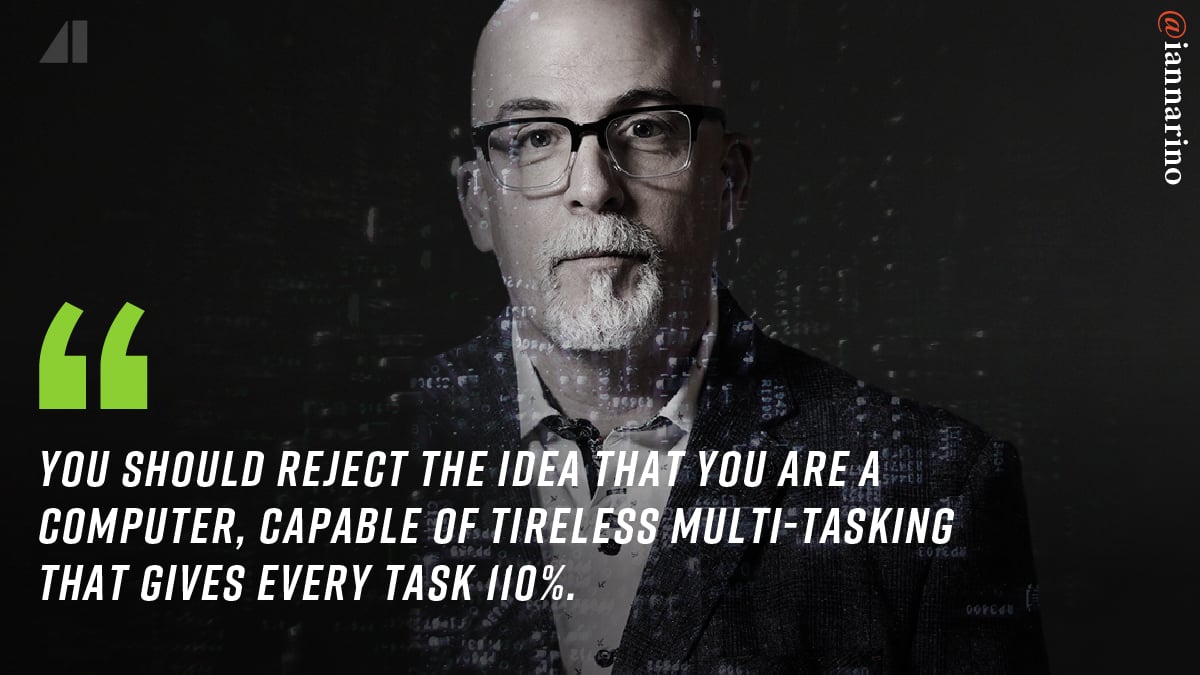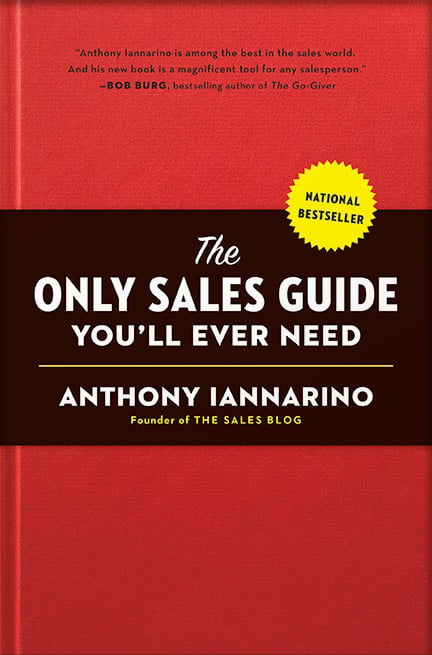The Gist:
- In the drive for efficiency, we have made it too easy to accept distractions.
- Software tools make it easy to collect obligations that are not truly important to your success or happiness.
- By increasing the friction needed to put something on your task list, you filter out anything that would steal time better spent on your goals.
There are a lot of things masquerading as efficiency that destroy any hope of being effective, including some allegedly labor-saving technologies. One such bad idea is having your email inbox right on your phone, ensuring that you can be “always on” and available for anything anyone needs at any time. Add texting and a mobile browser and you get the perfect distraction machine.
Developers and UX designers have worked very hard to make certain tasks frictionless, removing any physical or electronic barriers. One click lets you connect an app to your Google account, transferring files and personal information instantly. This may seem like an improvement, saving you precious seconds switching between programs, until you realize how much friction serves your long-term goals and initiatives.
Evernote, for example, is a wonderful piece of software. Originally designed as a way to remember everything, it allowed a user to take notes, collect files, and track just about anything else. It was the first software that could read the text in a picture, allowing you to find anything in your notebooks. Eventually, the developers built a web-clipper that allowed you to capture any page on the internet. What at first felt like efficiency ended with thousands of clipped pages and articles that overwhelmed the actually important stuff, leading many users to declare a kind of “Evernote bankruptcy.”
The High Price of Low Friction
Many apps allow you to add tasks to your list with nothing more than a click. They’ve made the experience completely frictionless, snowballing tasks or entire projects that you might want or need to do. This makes it easy to collect things you intend to do, but most things on that list offer nothing to your goals or initiatives, instead cluttering your vision and causing you to feel a sense of overwhelm.
Very much like that once-new treadmill now doubling as a clothes rack or junk drawer, your project and task lists can become “intention museums,” the things you believed you wanted or needed to do but never got done. The less friction it takes to add a task, the more easily things accumulate, until you feel as if things have spiraled out of control.


Increasing Friction
Every task management program is designed to make it easy to add to-dos. When something grabs your attention, it’s easy to throw it onto your task list. A legal pad is no better, with nothing to prevent you from writing dozens of tasks and ideas that sit untouched for weeks or years. You are not obligated to be obligated by things that don’t deserve your attention. Ignoring the noise and avoiding what doesn’t serve you may seem selfish, but it actually makes room for your goals and what’s truly important. Increasing friction—both for yourself and for other people who would dominate your task list—helps you create a protective barrier around your time and attention.
You can start by using a set of filters that allow you to measure the value of a project or a task, as a way to prevent the things that are not important from holding even a tiny piece of your attention hostage. Wide open filters allow everything to pass through without any real resistance, treating every project, initiative, or task as equally vital. Tighter filters prevent all but what’s important from making it through to the list of things you need to do, providing greater clarity of purpose and eliminating the noise.
Does What Has Your Attention Deserve Your Attention?
When there is a war going on for your attention, tighter filters serve to protect your time, your attention, and your energy. Tight filters create friction and barriers that keep things out. Most of what has your attention does not deserve it, and most of what deserves your full focus gets short shrift due the interruption-rich environment we have allowed into our lives. Under the guise of making things better, it has made many things worse, and nothing has been harmed more than our attention.
To reverse the damage from filters that are too loose to protect your time and attention, you can start with a solid “no” to every ask, unless and until the project, initiative, or task passes a difficult test, one that ensures that only what deserves your attention will command it. The idea that everything is an automatic “no” unless it can prove its value creates the tightest possible filter, removing any of the things that you fully intended (at least at one point) to do but which contribute nothing to your goals or the results you want to create in your life. Until you get your filters right, no amount of timesaving, streamlining, or gamifying will protect your effectiveness from the false hope of efficiency.


I Can’t Do That, Dave
One last thing: while you are saying “no” to anything and everything that doesn’t deserve your time and attention, you should also reject the idea that you are a computer, capable of tireless multitasking that gives every task 110%. Instead, give yourself over to the few things that make it through your filters, weeding out ephemeral tasks to make room for substantial success. You want to collect accomplishments and outcomes, not obligations to things with no real value. That path starts by making it incredibly difficult for something to earn its way onto your task list.
Do Good Work
- What commitments do you accept too easily that you later regret?
- What filters do you need to put in place to eliminate being overwhelmed by what is underwhelming in value?
- What friction do you need to create to make time for what’s important to your goals and ambitions?

Essential Reading!
Get my first book: The Only Sale Guide You'll Ever Need
"The USA Today bestseller by the star sales speaker and author of The Sales Blog that reveals how all salespeople can attain huge sales success through strategies backed by extensive research and experience."
Buy Now







.jpg?width=768&height=994&name=maximize-productivity-ebook-v3-1-cover%20(2).jpg)


